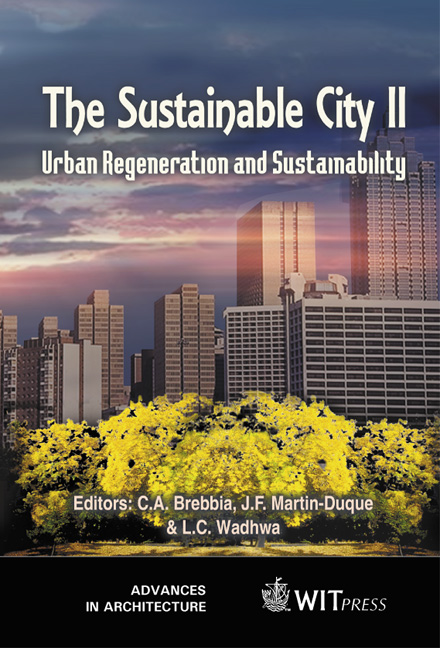Toward Sustainable Cities: Priorities In Economics, Ecology And Education
Price
Free (open access)
Transaction
Volume
54
Pages
Published
2002
Size
327 kb
Paper DOI
10.2495/URS020021
Copyright
WIT Press
Author(s)
W S Fyfe
Abstract
With few exceptions more and more people live in urban regions. The state of cities, in general, shows a strong correlation with the quality of education, education for every male and female, many say universal literacy, numeracy and sciency. A very good positive example is provided by Singapore, many cities in Europe, and negative examples abound in many parts of Africa, Asia. To plan urban development requires integration of expertise from many sectors, which include energy, water, architecture, transport, waste management, air quality, ecology, climate, earth sciences and particularly the need for economists who consider future generations not just the next five years. It is always interesting to look at the history of architecture, the science of building. Ancients knew how to build in seismic areas as beautifully shown in Japan and the origin of their love for wood! And I once slept in a 800-year-old house in central Saudi Arabia. They knew how to design, build, in a very hot country in the days before electricity. In North America there is a vast waste of energy for heating and air conditioning because of bad design of buildings of all sizes. The days of infinite, cheap energy are over! I spend time in schools at all levels in Canada. I am impressed by the concerns of our young people who will be here in 50 years when population reaches at least 8 billion. 1 Introduction: The new world I am always surprised by how few people appreciate the fact that we are living in a new period of the development of our species. When Jesus Christ was born there were about 200-300 million people on our planet and it took 1,700 years to double the population. The human population has doubled twice in my lifetime.
Keywords





